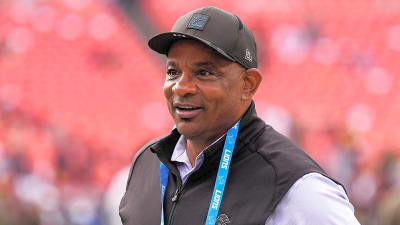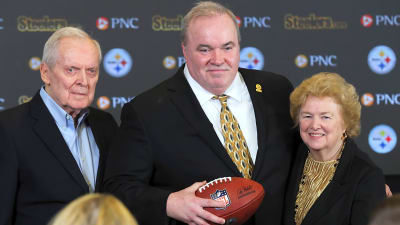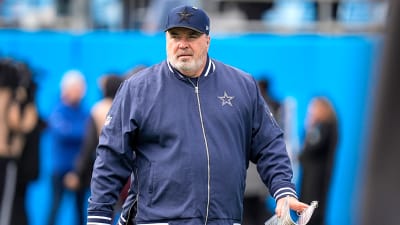
The first New Jersey Devils game I ever attended was on March 17, 2009. My three older brothers and I had begged my parents for months for tickets to a game, and we ended up at the brand-new Prudential Center for a legendary 3-2 win over the Chicago Blackhawks. Two records were broken on that night: Martin Brodeur earned his 552nd win as a goaltender, breaking Patrick Roy’s record for the most in NHL history, and Patrik Elias became the new all-time franchise points leader, scoring his 702nd off a perfect assist on Brian Gionta’s game-winning goal (GWG).
Elias, one of the all-time great players, has been overlooked by the Hockey Hall of Fame (HHOF) since he first became eligible in 2019. A two-time Stanley Cup champion, franchise leader in points, goals and assists, a respected two-way forward and a leader, he built his career on excellence and loyalty. Yet, he has not been inducted into the HHOF alongside his former teammates Brodeur, Scott Stevens, Scott Niedermayer, Peter Stastny and 2025 inductee Alexander Mogilny.
Elias, a Franchise Legend
Elias spent his entire 20-season NHL career in a Devils jersey. He was drafted 51st overall in the second round of the 1994 Draft and remained in black and red from 1995 to 2016. His remarkable career included 1,240 regular-season games and 1,025 points (408 goals, 617 assists). In the postseason, Elias continued to excel, tallying 125 points (45 goals, 80 assists) in 162 games.
He joined elite company alongside Ken Daneyko and Sergei Brylin as true, lifelong organization players, a testament to his loyalty and passion to be a Devil throughout the course of his career. For most of Elias’ tenure, the Devils were a defense-first team. Stevens, Niedermayer and Daneyko were among the big-name blueliners who had helped the Devils to two Stanley Cups. However, Elias was also a massive part of the team’s success, notching 20 points in 23 games in the 2000 Playoffs, including the GWG in Game 7 against the Philadelphia Flyers with just over two minutes remaining in regulation. In his time as a Devil, Elias had 113 power-play goals and 80 GWG. The Devils retired his number on Feb. 24, 2018 – the first forward in franchise history to receive this honor.
“You are a student of the game, and you have the ability to make those around you better. Your work ethic was second to none, and you excelled in any situation – five on five, shorthanded, power play, you were a game changer…” Former Devils captain Scott Stevens said during Elias’ jersey retirement ceremony. “You had the uncanny ability to make the big play when we needed it the most… You played the game for the success of the team, and boy did we have a lot of that with number 26 [Elias’ number].”
Elias’ International Impact
Other than being named to the NHL All-Rookie Team in 1998 and First All-Star Team in 2001 (as well as multiple appearances in the NHL All-Star Games where he repped a Devils sweater), Elias proudly represented Czechia throughout his career. He was twice named Czech Player of the Year (2009, 2012), was an Olympic Bronze medallist in 2006, and earned two World Championship bronze medals in 1998 and 2011.
Elias sits just behind Jaromir Jagr in points scored by an NHLer born in the Czechia, and is the only other Czech player besides Jagr to have reached 1,000 NHL points. Elias’ impact on the international level contributed to four Olympic Games appearances for Czechia, notably serving as team captain during the 2010 Olympics in Vancouver, Canada.
Elias the Elite Playmaker
Beyond his offensive talent, Elias was one of the best two-way forwards of his time. He excelled not just on the scoresheet, but as an elite, dynamic playmaker and defensive forward. He performed at the highest level regardless of whether he was slotted in at center or on the left wing. He was often matched up against the opposition’s best players because of his high hockey IQ – he was consistently one step ahead of the play, reliable in transition and almost unstoppable on the power play and in shorthanded situations. Elias played significant minutes on both the man advantage and penalty kill, a testament to his versatility as an effective all-around player.
Composure and consistency truly set Elias apart. He made complex plays look effortless, and he had a quiet but commanding demeanor that made those around him better. Coaches leaned on him in both big and small moments, knowing he could deliver at both ends of the ice. His leadership, while never loud, was undeniable; Elias led by example and was the kind of player teammates respected.
“I don’t really know the stats of the guys or what people are saying about them, but for me, Patty has always been the heart and soul for the team,” Brodeur said of Elias in a 2012 interview.
Elias played in his last game against the Toronto Maple Leafs on April 9, 2016, before he announced his retirement. In the team’s 5-1 victory, he scored a goal and two assists. In April 2017, he emerged from the tunnel to take one final lap during warmups to officially close out his career in front of the Devils faithful.
He is one of the best players of his generation who has yet to be inducted into the Hall of Fame.
“I don’t think there is any doubt he’s a Hall of Fame player,” former Devils head coach Pete DeBoer said. “It’s a great luxury to have him on the ice and in the dressing room. He thinks like a coach and he has a world-class player’s skills. When you’re building a hockey player, you can’t ask for much more than that.”
More must-reads:
- New York Rangers have a Vincent Trocheck conundrum
- Red Wings' Patrick Kane passes Hall of Famer Mike Modano to become top-scoring U.S.-born player in NHL history
- The 'Most TD in first two NFL seasons' quiz
Breaking News
Trending News
Customize Your Newsletter
 +
+
Get the latest news and rumors, customized to your favorite sports and teams. Emailed daily. Always free!








